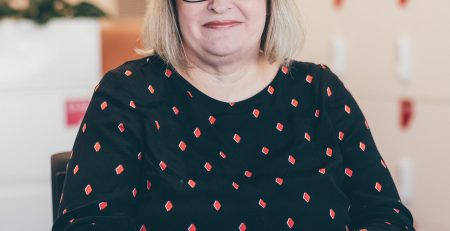More projects to trial 5G broadband and wireless technologies
As part of the £200m 5G Testbeds and Trials Programme, the Government has announced a further nine UK technology trials under the 5G Create scheme, reflecting a total investment of £28.3m (comprising £15.2m from the Government and £13.1m from the project partners) to help test various new 5G based broadband and wireless technologies. More than half of the projects in this round will use new OpenRAN technology and support greater diversification in the 5G supply chain.
The test projects include improving fan experiences at O2 arena and MK Dons stadium and trialling 5G-powered cargo ports and boosting tourism sites such as the Eden Project. The BBC series Green Planet will also use 5G through a new augmented reality app, fronted by Sir David Attenborough. The app has been developed by a consortium of leading creative and technology firms, including EE.
Here is a short summary of the projects:
Milton Keynes Council and its partners will test out 5G applications at Stadium MK to illustrate how it can empower other major venues to boost efficiency and create better experiences for visitors and staff in the future. The trials will include using driverless shuttles and road vehicles for moving people and goods across the site, autonomous surveillance vehicles and drones for enhancing security, and testing out robots and drones for goods delivery and hospitality use.
The Eden Project in Cornwall will explore how 5G and 360-degree video cameras can enhance the visitor experience. Those who are unable to go to the Eden site in person will be able to experience the exhibits and talks from their home, care home, school or anywhere in the world via a desktop, mobile or virtual reality device and be taken on a real-time virtual reality tour. The local 5G infrastructure will also be used to provide real-time data on core services such as energy and water management.
The Connected Cowes project is looking at how 5G technology can create an immersive yacht racing experience for the sailing community and spectators in Cowes and online, and to widen the audience and appeal of the sport. 5G technology will be used to stream real-time virtual reality video from on-board yachts racing at events from Cowes across multiple classes throughout the summer.
5G AMC 2 (Accelerate, Maximise and Create for Construction) seeks to explore how 5G can enable the use of data to maximise the productivity of construction processes. The project will set up a private 5G network at construction firm BAM Nuttall’s regional office in Kilsyth, Scotland, and a construction project in Shetland, using cameras, drones, mixed reality and IoT sensors to monitor the construction process and track assets.
Live and Wild: Filming with 5G (OpenRAN)
Live & Wild: Filming with 5G presents a series of real and challenging filming scenarios to test 5G’s capacity to support the needs of the documentary film industry in the UK. Filming will take place in a variety of extreme locations and weather conditions across the UK designed to test 5G’s performance to its limit including, caving in the Yorkshire Dales, sea cliff climbing in North Wales and ultra-running across Britain. The project will monitor 5G’s resilience, adaptability, reliability, and image quality as it live streams high-end video content.
This project will take full advantage of 5G to deliver new and exciting in-stadium digital experiences. The project will deliver next-generation viewing experiences for event spectators by providing live multi-angle HD video streams and interactive content from the event directly to devices in stadia and across the UK. The end goal is to demonstrate consumer demand and deliver the business case to enable 5G-powered sporting events in the near future.
The project will demonstrate additional ways that 5G benefits the public by creating a ground-breaking and entertaining augmented reality (AR) app for mobile phones. This unique immersive experience will offer an exciting new way for audiences of all ages to learn more about the natural world by streaming scientifically accurate plants and creatures streamed into a number of set locations around the UK. The consortium is led by immersive content company Factory 42 working in partnership with BBC Studios, EE, Talesmith, Dimension Studios and Royal Botanic Gardens, Kew.
Working with its partners Three UK, Cambridge University and Blue Mesh Solutions, along with key subcontractors Ericsson and Siemens, the project will test the potential of 5G across two use cases: enabling remote-controlled cranes via the transmission of CCTV and deploying internet of things sensors and artificial intelligence to optimise the predictive maintenance cycle of Felixstowe’s 31 quay-side and 82 yard cranes. Harnessing the speed, low-latency, and high-capacity of 5G, the project will demonstrate the productivity and efficiency gains of such technology, whilst reducing unplanned outage. The government wants technology to form part of its wider strategy for the border, which will establish resilient ‘ports of the future’ at border crossing points to make the experience smoother and more secure for travellers and traders, while better protecting the public and environment.
The West of England Combined Authority’s 5G Logistics project programme will develop 5G products and services to support operations at Bristol Port and Gravity Smart Campus and demonstrate a smart and dynamic port environment. The project will focus on security, traceability, and tracking of goods within and across extendable virtual boundaries – and between public and private networks. It will demonstrate how efficiency and productivity could be improved by replacing existing manual scanned barcode identification with automated recognition and real-time location tracking of items within a 5G Internet of Things environment. The project offers the potential for such advances in technology to be implemented industry-wide, including at other ports in the UK, Enterprise Zones, or other business parks.





